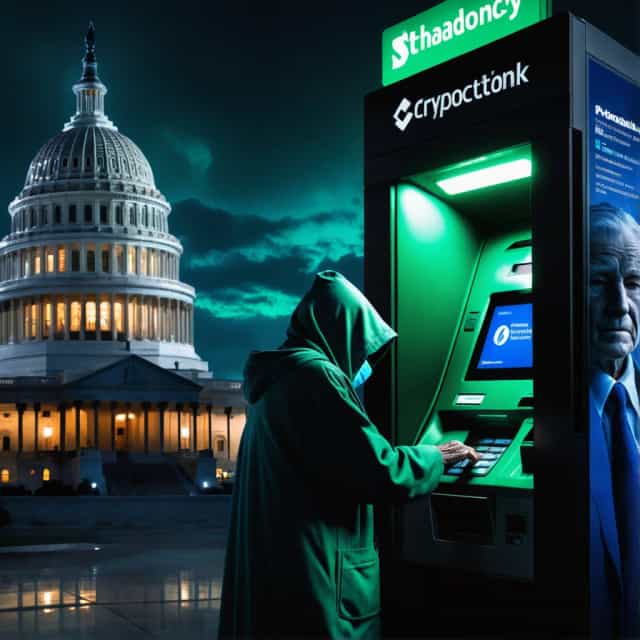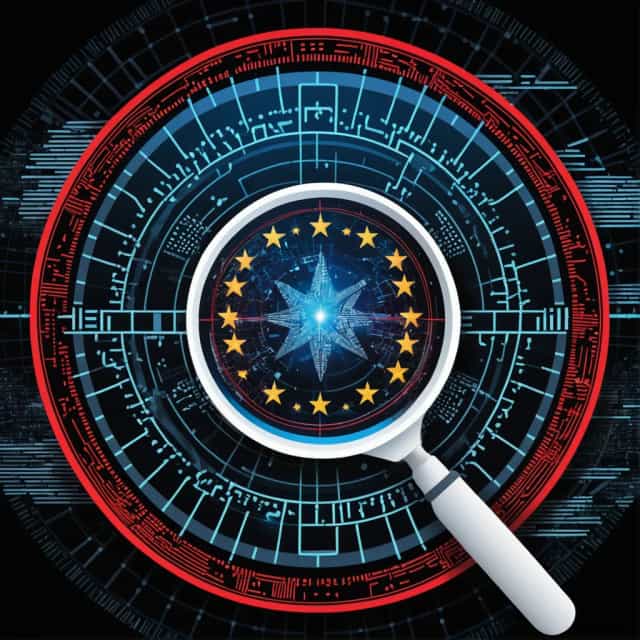
Image source: Block Media
Cryptocurrency Industry: A Strategic Solution Amid Tightened U.S. Immigration Policies
The tightening of U.S. immigration policies under former President Donald Trump, particularly those targeting skilled workers, has presented new challenges for international professionals seeking opportunities in America. However, these restrictions could inadvertently open doors for the cryptocurrency sector to address these barriers, providing a unique pathway for immigrant talent to flourish.
As traditional visa programs like H-1B face mounting difficulties, the digital asset industry offers a merit-based alternative that prioritizes excellence and documented contributions. For skilled professionals with strong portfolios, this burgeoning industry may represent a viable route to secure employment and residency in the U.S.
Impact of H-1B Visa Policy Overhaul
In September 2025, an executive order dramatically reshaped the H-1B visa program by imposing a $100,000 fee on new applications, excluding renewals and extensions. This steep expense eliminated many potential applicants who lacked the necessary financial resources.
Further reforms also prioritized higher-wage and specialized roles, significantly reducing access for entry-level or mid-tier positions. Between the fiscal year of 2025 and 2026, H-1B visa applications dropped by a staggering 26.9%, creating a talent supply shock across critical industries such as healthcare, technology, and finance.
The increasingly competitive landscape of traditional skilled immigration programs has amplified the demand for alternative avenues, particularly within sectors like blockchain and cryptocurrency.
Cryptocurrency Sector: A Merit-Based Immigration Solution
Unlike traditional industries reliant on rigid corporate systems, the cryptocurrency and blockchain space thrives on global collaboration and transparent, verifiable contributions. The sector has long faced a shortage of professionals adept in areas such as blockchain development, cryptography, smart contract auditing, and tokenomics. Immigrant professionals skilled in these domains may find unique opportunities to strengthen their immigration cases through open, publicly documented achievements.
The O-1 visa serves as a gateway for such skilled workers. Unlike the H-1B, the O-1 visa operates without numerical caps or randomized lottery systems. Candidates demonstrate their qualifications through documented excellence in their fields—ranging from contributions to open-source projects on platforms like GitHub to research publications and conference presentations.
Additionally, blockchain innovation aligns strongly with U.S. priorities in financial leadership and cybersecurity, making professionals in this space well-positioned for EB-1A visas and EB-2 NIW (National Interest Waivers). These green card categories emphasize national interest contributions, offering long-term residency options for high-impact individuals in the digital asset industry.
Strengthening Immigration Applications Through Public Contributions
One of the core strengths of the digital asset sector lies in its open and verifiable nature. Professionals can bolster their immigration applications by showcasing public portfolios that highlight impactful technical contributions. Roles such as protocol engineering, cryptographic research, and smart contract development yield publicly accessible work—such as GitHub repositories, conference accolades, and academic citations—that strengthen their cases for immigration.
Beyond technical roles, regulatory-focused positions in Anti-Money Laundering (AML), Know Your Customer (KYC) compliance, and tokenized asset management present additional pathways. Publishing governance proposals, policy papers, or thought leadership content further enhances an applicant's qualifications, demonstrating influence in navigating complex industry regulations.
Importance of Transparent Portfolios
Careers within blockchain inherently create transparent portfolios that are invaluable for visa applications. Activities like contributing to open-source projects, participating in global events such as Devcon or Token2049, and securing research grants serve as credible documentation of expertise.
The collaborative nature of the digital asset industry allows professionals to establish connections with U.S.-based employers and colleagues who can provide recommendation letters—a critical component of many visa processes. With remote work now widely accepted, forging these relationships before applying for a visa is easier than in traditional IT verticals, where closed corporate systems impede public documentation efforts.
Alternative Visa Pathways for Cryptocurrency Professionals
The O-1 visa provides an initial pathway for immigrant workers in the cryptocurrency field, but it also serves as a stepping stone toward permanent residency. Professionals often transition to green cards through categories like EB-1A or EB-2 NIW, leveraging their documented contributions to financial innovation and security enhancement in the U.S.
Additionally, blockchain startup founders can utilize the International Entrepreneur Parole program to launch ventures in the U.S., provided they secure substantial venture funding. This program offers residency opportunities while enabling entrepreneurs to expand their businesses within the American market.
Though some professionals in the cryptocurrency sector may still encounter H-1B application challenges—such as the $100,000 fee and wage-based prioritization—they are uniquely positioned to bypass these hurdles through alternative visa solutions. By maintaining transparent portfolios and contributing to high-impact projects, these professionals can effectively align their qualifications with the requirements of O-1 and EB categories.
Conclusion
As traditional U.S. immigration routes tighten, the cryptocurrency and blockchain sectors emerge as viable alternatives for skilled workers worldwide. The industry’s focus on excellence, open collaboration, and merit-based contributions offers immigrant professionals a clear pathway to success. Whether through O-1 visas or green card routes like EB-1A and EB-2 NIW, opportunities abound for individuals to substantiate their qualifications and secure their place in America’s digital asset evolution.
For skilled foreign professionals affected by restrictive policies, the cryptocurrency industry not only addresses talent shortages but also aligns with long-term U.S. objectives in financial leadership and security innovation. As immigration challenges rise, the digital asset sector stands as a rare beacon of opportunity.










